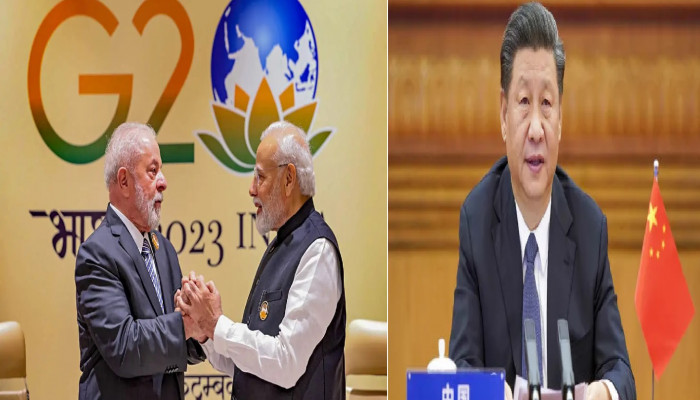Brazil becomes second BRICS country after India to reject China’s BRI
- In Reports
- 12:47 PM, Oct 29, 2024
- Myind Staff
In a significant shift within the BRICS bloc, Brazil has decided against joining China's ambitious Belt and Road Initiative (BRI), marking it as the second BRICS nation after India to distance itself from the mega-infrastructure project. President Lula da Silva’s administration is now exploring alternative avenues for collaboration with Chinese investors, according to Celso Amorim, special presidential adviser for international affairs, who spoke on the matter Monday.
"We are not entering into a treaty,” Amorim explained to Brazilian newspaper O Globo, emphasising that Brazil’s intent is to “take the relationship with China to a new level, without having to sign an accession contract.” He highlighted that Brazil is not seeking to rely on Chinese infrastructure initiatives as “an insurance policy,” preferring a partnership that doesn't require joining the BRI formally.
While Brazil acknowledges the investment opportunities within the Belt and Road framework, Amorim clarified that Brazil aims to align some Brazilian infrastructure projects with the initiative’s funds “without necessarily formally joining the group,” as reported by the South China Morning Post.
The timing of Brazil’s decision disrupts China's plans to make the BRI partnership a highlight of President Xi Jinping's scheduled state visit to Brasilia on November 20. Recently, Brazilian economy and foreign affairs ministry officials expressed concerns about the BRI's relevance for Brazil, with an internal sentiment emerging that joining would offer few short-term benefits while potentially straining relations with a future U.S. administration.
Amorim and Brazilian President’s chief of staff Rui Costa, who visited Beijing last week to assess the BRI proposal, reportedly returned “unconvinced and unimpressed” by the opportunities presented, sources informed the South China Morning Post.
Notably, President Lula, due to a recent injury, did not attend the latest BRICS summit in Kazan. Former President Dilma Rousseff, a close ally of Lula, currently leads the BRICS New Development Bank based in Shanghai, a factor underscoring Brazil's continued strong association with BRICS despite its BRI decision.
India remains the first BRICS nation to have rejected the BRI over sovereignty concerns, especially regarding the China-Pakistan Economic Corridor (CPEC), a key BRI project passing through Pakistan-occupied Kashmir. Indian representatives consistently voice their concerns in BRICS and other global platforms, underscoring the need for BRI projects to adhere to principles of transparency, financial sustainability, and respect for international norms.
The U.S. has also weighed in, with Trade Representative Katherine Tai recently urging Brazil to evaluate the BRI through an “objective lens” and “risk management” considerations. Her comments received backlash from China’s embassy in Brasilia, which condemned them as “irresponsible” and “disrespectful.” China’s Global Times editorial on Monday also criticised Tai’s comments, likening them to a modern “Monroe Doctrine” and asserting that “Brazil does not need others to dictate who to cooperate with or what kind of partnerships to conduct.”
The editorial further contended that the “normal economic and trade cooperation” between China and Brazil should not be scrutinized by third parties. It added, “The cooperation between China and Brazil not only aligns with the interests of both countries but also meets the need for the Global South to build a more just and equitable international economic order. This trend Washington cannot stop.”







Comments